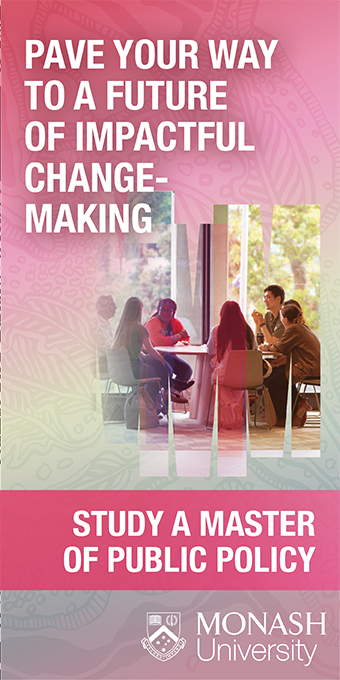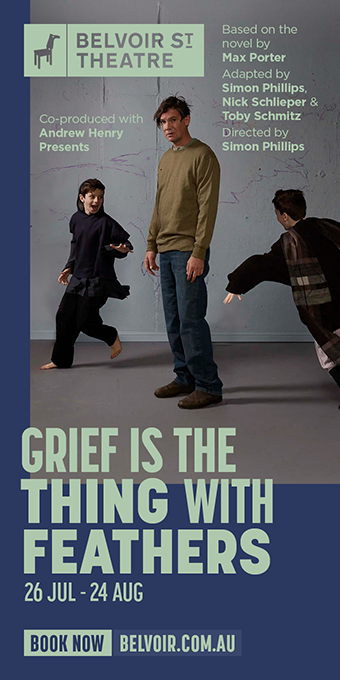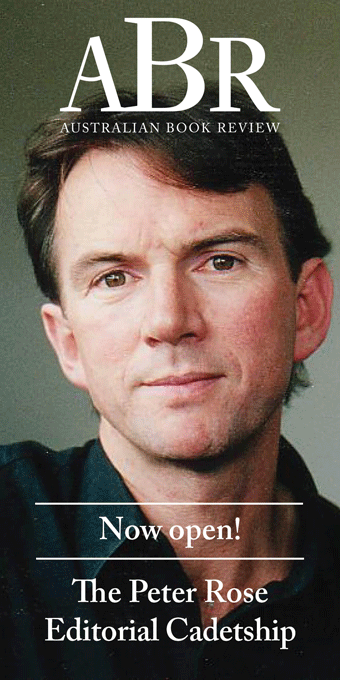Competitions and programs (116)
Calibre Essay Prize - Frequently Asked Questions
I don’t live in Australia and I am not an Australian citizen. Can I still enter the Calibre Essay Prize?
Yes. Anyone can enter the Calibre Essay Prize. But all essays must be written in English.
I’m interested in the Calibre Essay Prize but don’t know much about it. How can I familiarise myself with the competition?
This is the nineteenth time that ABR has presented this prize. Click here for more information about past winners. Subscribers can access all past winning stories, available to read in our online archive or to purchase in hard-copy from our online store. To learn more about becoming a subscriber, click here.
How can I find out more about ABR?
ABR is a cultural magazine that appears in print and online eleven times a year. You can subscribe to the magazine by clicking here, or you can purchase single issues here. Digital subscriptions start from as little as $10 per month.
What are the opening dates for the 2025 Calibre Essay Prize?
Entries opened 28 October 2024 and will close at 11:59pm (AEST) on 28 January 2025.
What are the prizes for the 2025 Calibre Essay Prize
The 2025 Calibre Essay Prize is worth a total of $10,000. The winner will receive $5,000. The second prize is worth $3,000, the third prize, $2,000. All three winning essays will appear in Australian Book Review in 2025 (print and online).
Is there a set theme or topic for the Calibre Essay Prize?
No, we welcome non-fiction essays of all kinds: personal or political, literary or speculative, traditional or experimental.
What is the word limit for the Calibre Essay Prize?
Essays must be between 2,000 and 5,000 words.
Should endnotes be included in the word count?
Yes. The maximum number of words is 5,000. While not rejecting endnotes, we discourage the inclusion of many.
Is ABR an academic journal? Are you looking for academic articles?
ABR is not an academic journal, though our interests are sophisticated and we publish many academics. We are looking for general non-fiction essays that will make brilliant literary journalism.
Are images acceptable?
Yes. You may illustrate your essay, but the total file size should not exceed 3 MB.
Can I enter multiple essays as one entry?
No. Separate entries must be made, and fees paid, for each essay entered into the Calibre Essay Prize. This is to ensure that a record is kept of each essay entered, and also to ensure that payment is successfully made for each. If you purchase a subscription to ABR, subsequent entries can be made at the subscriber rate of AU$20.
Is there a limit to the number of essays I can enter?
No, but as stated above, each essay must be entered and paid for separately as individual entries. If you purchase a subscription to ABR, subsequent entries can be made at the subscriber rate of AU$20 per entry.
Can I submit or publish the work I have entered in the Prize elsewhere while I await notification?
Yes, entries may be offered elsewhere during the judging of the Calibre Prize. If an entrant is longlisted and has their essay offered elsewhere, the entrant will have 24 hours to decide if they would like to withdraw their essay on offer elsewhere or from the Calibre Prize.
I have written an essay with a colleague. Are we eligible to enter the Calibre Essay Prize?
No, entries must be single-authored.
Are translated essays eligible for entry in the Calibre Essay Prize?
No.
To be eligible for entry in the Calibre Essay Prize, essays must not have been previously published. What constitutes ‘publication’?
Publication includes, but is not limited to, publication in print and online (for example in a journal/magazine/anthology or on a website). Publication on a personal blog/website/social media constitutes publication. If an essay has been written and assessed as part of a writing course but has not been distributed further, that does not constitute publication. Please contact us if you are unsure about eligibility at This email address is being protected from spambots. You need JavaScript enabled to view it. or on (03) 9699 8822.
My essay was shortlisted/longlisted/commended for another prize. May I enter it in the Calibre Essay Prize?
If your essay was shortlisted/commended for another prize but was not published, then it can be entered in the Calibre Essay Prize. Please contact us if you are unsure about eligibility at This email address is being protected from spambots. You need JavaScript enabled to view it. or on (03) 9699 8822.
My essay was shortlisted/longlisted/commended for a previous Calibre Essay Prize. May I enter it in this year’s Calibre Essay Prize?
Essays that were publicly shortlisted, longlisted or commended in a previous Calibre Essay Prize are ineligible.
Can I enter my story using a pseudonym?
Works must be entered under a real name. Internally, ABR ensures that names are not associated with essays for the judging process. Essays are strictly blind judged. Should your work be shortlisted and named, pseudonyms will not be acceptable. For publicity reasons, all shortlisted authors must be publicly named.
Can I enter by post?
No, entries must be submitted online.
How should I format my essay?
Entries should be presented with 1.5 line spacing and in 12 pt font size. The pages should be numbered. Your name must not appear in the manuscript or in the title of the digital file as judging is conducted blind.
What file type is acceptable?
We accept Word documents only. PDFs are not allowed.
Who is eligible to pay the discounted entry fee?
Current print and/or digital subscribers are able to pay the discounted entry fee of AU$20 per entry. Non-subscribers pay AU$30 per entry. If you would like to subscribe to ABR, click here.
Alternatively, you can purchase a print and/or digital subscription with your entry. We have a variety of options, each listed below. Upon successful payment, your subscription will be automatically ready to use. You will receive an email with your details. After signing in to the website with the Username and Password you have chosen, you will be able to enter any additional essays at the discounted rate.
Current ABR subscribers: $20
Standard/non-subscribers: $30*
Entry + 1-year digital subscription: $100
Entry + 1-year print subscription (Australia): $130
Entry + 1-year print subscription (NZ and Asia): $220
Entry + 1-year print subscription (Rest of World): $240
Note: Print subscribers must provide their subscriber number to be eligible for the discounted rate (this can be found on the flysheet sent out with the magazine, or on renewal notices – alternatively, This email address is being protected from spambots. You need JavaScript enabled to view it. and we will provide you with your subscriber number).
Can I pay with PayPal?
No. At this time we are accepting credit card payments only – Visa and MasterCard.
Will I receive confirmation of payment?
Yes, once you have submitted your online entry and payment form, you will receive a confirmation email at the email address you supplied in the form. Keep a copy for your records. If you cannot find the confirmation email, be sure to check that it has not gone to your spam or junk folders.
Who are the judges this year?
The 2025 judges are Georgina Arnott, Theodore Ell, and Geordie Williamson.
Will you give me feedback about my essay?
Unfortunately we don’t have the time or resources to comment on individual essays.
How can I stay in touch with news about the Calibre Essay Prize?
If you have provided us with a current email address we will contact you with news about the Calibre Essay Prize. Another way to stay up-to-date with news about the Prize and other ABR prizes and events is to sign up to our newsletters. You can also follow us on Twitter, Facebook, and Instagram.
Where can I find the complete Terms and Conditions of entry?
These can be found here.
My question isn’t answered here, what should I do?
If you have a question about the Calibre Essay Prize that isn't answered here, or in the Terms & Conditions, please contact us via the comments facility below and we will respond when we can (your queries will not be posted publicly). Alternatively, please contact us at This email address is being protected from spambots. You need JavaScript enabled to view it. or on (03) 9699 8822.
2014 Jolley Prize Winner: Jennifer Down
Announcing the 2014 Jolley Prize winner
Jennifer Down was named the winner of the 2014 Jolley Prize by Ian Dickson at The Cube, ACMI on Saturday 30 August. She received a total of $5,000 for her winning short story, ‘Aokigahara’. Faith Oxenbridge came second place with her story 'The Art of Life', winning $2,000, and Cate Kennedy came third with 'Doisneau's Kiss', winning $1,000. We would like to congratulate all shortlisted entrants and thank all those who entered their stories.
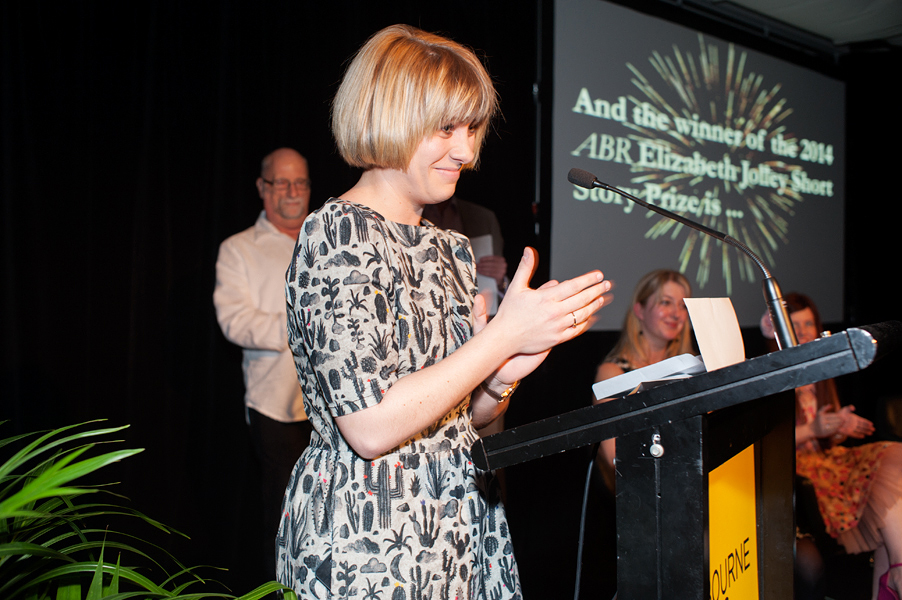 Jennifer Down at the announcement ceremony (photograph by Torunn Momtazi)
Jennifer Down at the announcement ceremony (photograph by Torunn Momtazi)
The ABR Elizabeth Jolley Short Story Prize is one of the country’s most prestigious awards for short fiction. This year it attracted about 1200 entries, most of them newly written for this competition. They kept busy our three judges: Cassandra Atherton, Amy Baillieu, and Patrick Allington.
Porter Prize Frequently Asked Questions
Do I have to be a paid ABR subscriber to enter?
No, you do not have to be a paid ABR subscriber to enter our prizes. However, you will need to sign in to an existing account or create a new one in order to enter.
Why do I need to sign in?
Non-subscribers who enter an ABR prize receive a free four-month digital subscription. If you are a non-subscriber, simply create a new account as part of your entry.
Current subscribers who sign in will gain access to the discounted entry rate. If you are not a current subscriber but your email is associated with an old account, signing in enables us to automatically process your complimentary digital access or bundled subscription.
If you have previously entered an ABR prize, you will have received a free four-month digital subscription. This means your details exist in our system and you will need to sign in to enter. See below if you have forgotten your sign-in details.
I have forgotten my Username/Password
If you do not know your sign-in details, visit Forgot Username or Forgot Password to update them. If you have any problems, please contact us by emailing This email address is being protected from spambots. You need JavaScript enabled to view it. or by calling the ABR office on (03) 9699 8822 during work hours.
I don’t live in Australia and I am not an Australian citizen. Can I still enter?
Yes, you can. Anyone can enter the Porter Prize. But all poems must be written in English.
I’m interested in the Porter Prize but don’t know much about it. How can I familiarise myself with the competition?
This is the twenty-second time Australian Book Review has presented a poetry prize. Past issues containing the shortlisted and winning poems are available for subscribers to read online in our online archive, or to purchase in hard-copy from our online store.
Click here for more information about past winners.
How can I find out more about Australian Book Review?
ABR is a literary and cultural magazine that appears in print and online eleven times a year. You can purchase print and/or digital subscriptions here, with digital subscriptions starting from just $10 per month. You can also order individual copies of the print edition.
Who was Peter Porter?
Peter Porter – born in Queensland and based in London for almost all his adult life – was one of Australia’s greatest poets. His vast body of poetry was gathered in two Collected Poems, and his poems appear in any serious anthology of Australian or British verse. They are well represented in Copyright Agency’s Australian Poetry Library. His most famous poetry collection is The Cost of Seriousness (1978). Porter edited several anthologies, including The Oxford Book of Modern Australian Verse (1996). He wrote thousands of reviews, essays, lectures, and introductions. His work appeared in Australian Book Review from 1985 to 2010. His fellow poet–critic Peter Steele, who wrote a monograph on Porter, published this tribute in ABR following Peter Porter’s death on 23 April 2010. ABR’s poetry prize was renamed in his honour following his death.
When will the 2026 Porter Prize close?
Entries close at midnight, 13 October 2025 AEST.
Is there a set theme or topic for the Porter Prize?
No, poems can be on any subject and in any style.
How do I know if my poem is an eligible length to enter the Porter Prize?
Entries can be up to 60 lines long. The following are not included in the 60-line limit: the title of the poem, epigraph, stanza breaks, any footnotes, and internal numbers.
To be eligible for entry in the Porter Prize, poems must not have been previously published. What constitutes ‘publication’?
Publication includes, but is not limited to, publication in print and online (for example in a journal/magazine/anthology or on a website). Publication on a personal blog/website/social media constitutes publication. If a poem has been written and assessed as part of a writing course but has not been distributed further, this does not constitute publication.
My poem was shortlisted/commended for another prize, may I enter it in the Porter Prize?
If your poem was shortlisted/commended for another prize but was not published, then it may be entered in the Porter Prize. Please contact us if you are unsure about eligibility.
Can I submit or publish the work I have entered in the Prize elsewhere while I await notification?
Entries may be offered elsewhere during the judging of the Porter Prize. If an entrant is longlisted and has their poem offered elsewhere, the entrant will have 24 hours to decide if they would like to withdraw their poem on offer elsewhere or from the Porter Prize. Exclusivity is essential for longlisted poems.
Can I enter multiple poems in one entry?
No. Separate entries must be made, and entry fees paid, for each poem entered into the Porter Prize. This is to ensure that a record is kept of each poem entered, and also to ensure that payment is successfully made for each. If multiple poems are submitted as part of one entry, only the first poem will be considered.
Is there a limit to the number of poems I can enter?
No, but as stated above, each poem must be entered and paid for separately, as individual entries.
Can I enter my story using a pseudonym?
Works must be entered under a real name. Internally, ABR ensures that names are not associated with essays for the judging process. Essays are strictly blind judged. Should your work be shortlisted and named, pseudonyms will not be acceptable. For publicity reasons, all shortlisted authors must be publicly named.
I have written a poem with a friend, are we eligible to enter the Porter Prize?
No, poems entered into the Porter Prize must be written by one individual author.
Are translated poems eligible for entry in the Porter Prize?
No.
What are the prizes on offer in the 2026 Porter Prize?
The Porter Prize is now worth a total of $10,000. The shortlisted poems will be published in the January–February 2026 issue. The winner will receive $6,000. The other four shortlisted poets will each receive $1,000.
Can I pay the discounted entry fee?
Current print and digital subscribers may pay the discounted entry fee of AU$20 per entry. Non-subscribers pay AU$30 per entry. If you would like to subscribe to Australian Book Review in print or digital, click here.
Alternatively you can purchase a yearly digital subscription to ABR with your entry for the combined price of AU$100. You will be entitled to enter any additional poems at the discounted rate. We also offered combined print subscriptions and Porter entry packages. A full list of these rates appears below:
Porter Entry (Subscriber): $20
Porter Entry (Non-Subscriber)*: $30
Porter Entry + ABR one-year digital subscription: $100
Porter Entry + ABR one-year print subscription (within Australia): $120
Porter Entry + ABR one-year print subscription (within New Zealand/Asia): $200
Porter Entry + ABR one-year print subscription (ROW): $220
* Entrants who choose not to subscribe when entering the Porter Prize, and who are not already current ABR subscribers, will be provided with digital access to ABR, free of charge, for four months. Eligible entrants will be contacted when their complimentary subscription has been activated.
Can I pay with PayPal?
At this time we are accepting credit card payments ONLY – Visa and MasterCard. We regret that we cannot accept AMEX at this time.
Will I receive confirmation of payment?
Yes, once you have submitted your online entry and payment form, you will receive a confirmation email at the email address you supplied in the form. Keep a copy for your records. If you cannot find the confirmation email, be sure to check that it has not gone to your spam or junk folders.
Can I enter by post?
No, entries must be submitted online.
Who are the judges this year?
The 2026 judges are Judith Bishop, Felicity Plunkett, and Anders Villani.
Will you give me feedback about my poem?
We don’t have the time or resources to comment on individual poems.
How should I format my poem?
Entries should be presented with 1.5 line spacing and in 12 pt font size. The pages of poems should be numbered. The author’s name must not appear on the manuscript or in the name of the digital file.
How can I stay in touch with news about the Porter Prize?
If you have provided us with a current email address we will contact you with news about the Prize. Another way to stay up to date with news about the Prize and other ABR prizes and events is to sign up to our free monthly e-News. You can also follow us on Twitter or like us on Facebook.
Where can I find the complete terms and conditions of entry?
These can be found here.
My question isn't answered here, what should I do?
If you have a question about the Porter Prize that isn't answered here, or in the entry guidelines, please contact us via the comments facility below and we will respond when we can.
2013 Porter Prize Winner: John A. Scott
Four Sonnets
The Drowning of Charles Kruger, Fireman
(St Valentine’s Day, 1908)
Comes a fire into Canal Street:
its rows of clapboard tenements rotting back
to marsh. He knows it too well, the ‘furniture
district’. This time, a fire built on picture frames.
Charles Kruger drops onto what he thought
a cellar floor, finding instead his New World to be
eight feet of seepage bound by stone. He kicks
back to smoky air. From above come voices.
Lanterns play upon the shifting surface, sending
wobblings of light across the walls (ectoplasm
of his own trembling device) – the ghost of him
seeking release. He gives it up. Warbles out
his love. He takes the eager water: a brief
consummation made of thrashing arms.
Gustav Mahler in New York (1908)
It is the bass drum which has summoned him.
The dull collisions of felted wool against calf
skin. The end of everything, he knows, these
muted thuds.
The Mahlers have taken an
eleventh-floor suite (there are two grand pianos),
at the Hotel Majesticon Central Park West.
He joins Alma at the window. Directly below,
is the halted cortège of Charles Kruger.
Once more, the tufted mallet meets the drum
head. He sees the tight-packed waves speed
upwards, rattle through the window and collide
with his chest. He recoils. Curves his body at
the waist. A bow (conductor to his audience),
only contorted thus, gasping for air.
Mahler at Toblach (1910)
Madness, seize me and destroy me,
he scrawls across the staves. To the movement
(purgatorio)he adds a final, isolated note. Marks
it thus – ‘completely muffled drum’. At which
the four-paned windows of the häuschen burst
apart and the room fills with grey feathers.
He rises, choking. A storm of plumaged air
beating at his face. Then gone. He gathers up
the sketches from the floor. The young architect
has declared his love – (misaddressing it, he
claims, to Herr Direktor Mahler). My Almschili
he scrawls, You are not ashamed, it is I who am.
Alas, I still love you.Who finds his mouth
crammed full with soaked grey feathers.
Epilogue (1911)
Back in New York the throat infection re-
occurs. He conducts Busoni’s Berceuse
Élégiaque and returns to Europe.
Bacteria now gather at the lesioned heart.
‘My Almachi’, he cries again (again). At some
point the kidneys fail. Black water seeps into
his lungs. He drowns by tiny increments –
the death mask imparts a serenity
not on display during his final hours.
He has entrusted his sketches of the
Tenth to Alma. In the salon she tears
the most damning scrawl from the manuscript.
Carries it to the fire. Sets it to flame.
Past winners of the Peter Porter Poetry Prize
ABR subscribers can read all previous prize-winning and shortlisted poems to the Porter Prize. If you aren't a subscriber, digital subscriptions begin at only $10 per month. Click here to become an ABR subscriber.
2025
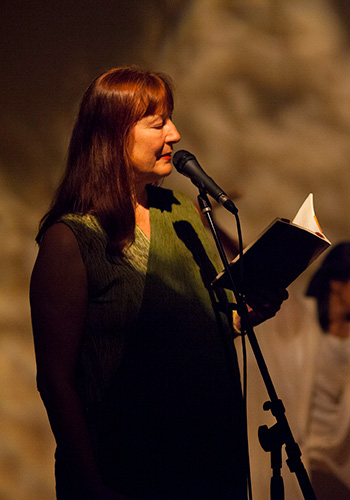 Meredith Stricker: ‘The Vastness of What Poetry Can Do’
Meredith Stricker: ‘The Vastness of What Poetry Can Do’
Meredith Stricker is the winner of the 2025 Peter Porter Poetry Prize, worth a total of $10,000. The winner was named at a ceremony held at Readings Carlton on 18 February 2025.
Meredith Stricker’s winning poem is titled ‘The Vastness of What Poetry Can Do’, for which she received $6,000. The other four shortlisted poets each receive $1,000. The full shortlist, including the winning poem, is available to read online.
This year’s judges – Sarah Holland-Batt, Paul Kane, and Peter Rose – shortlisted five poems from 1,171 entries. The shortlisted poets were Sarah Day (Tas), Jennifer Harrison (Vic), Audrey Molloy (NSW), Claire Potter (NSW), and Meredith Stricker (USA).
2024
Dan Hogan: ‘Workarounds’
Dan Hogan is the winner of the 2024 Peter Porter Poetry Prize, worth a total of $10,000. The winner was named at a virtual ceremony on 23 January 2024.
Dan Hogan’s winning poem is titled ‘Workarounds’, for which they receive $6,000. The other four shortlisted poets each receive $1,000. The full shortlist, including the winning poem, is available to read online.
This year’s judges – Lachlan Brown, Dan Disney, and Felicity Plunkett – shortlisted five poems from 1,066 entries. The shortlisted poets were Judith Nangala Crispin (NSW), Natalie Damjanovich-Napoleon (WA), Dan Hogan (NSW), Meredi Ortega (Scotland/UK), and Dženana Vucic (Germany).
2023
Dan Disney: 'periferal, fantasmal’
Dan Disney is the winner of the 2023 Peter Porter Poetry Prize, worth a total of $10,000. The winner was named at a virtual ceremony on 19 January 2023.
Dan Disney's winning poem is titled 'periferal, fantasmal', for which he receives $6,000. The other four shortlisted poets each receive $1,000. The full shortlist, including the winning poem, is available to read online.
This year’s judges – Sarah Holland-Batt, James Jiang, and Des Cowley – shortlisted five poems from 1,132 entries. The shortlisted poets were Chris Andrews (Australia), Chris Arnold (Australia), Michelle Cahill (Australia), Dan Disney (South Korea), and Raisa Tolchinsky (United States).
2022
Anthony Lawrence: 'In the Shadows of Our Heads'
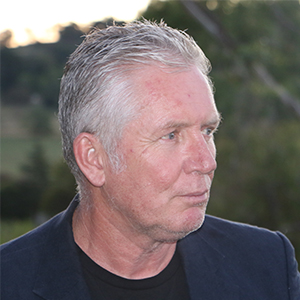 Anthony Lawrence is the winner of the 2022 Peter Porter Poetry Prize, worth a total of $10,000. The winner was named at a virtual ceremony on 19 January 2022.
Anthony Lawrence is the winner of the 2022 Peter Porter Poetry Prize, worth a total of $10,000. The winner was named at a virtual ceremony on 19 January 2022.
Anthony Lawrence's winning poem is titled 'In the Shadows of Our Heads', for which he receives $6,000. The other four shortlisted poets each receive $1,000. The full shortlist, including the winning poem, is available to read online.
This year’s judges – Sarah Holland-Batt, Jaya Savige, and Anders Villani – shortlisted five poems from 1,328 entries, from 34 countries. The shortlisted poets were Chris Arnold (WA), Dan Disney (South Korea), Michael Farrell (Vic), Anthony Lawrence (Qld), and Debbie Lim (NSW).
2021
Sara M. Saleh: 'A Poetics of Fo(u)rgetting'
 Sara M. Saleh is the winner of the 2021 Peter Porter Poetry Prize, worth a total of $10,000. The winner was named at a virtual ceremony on 27 January 2021.
Sara M. Saleh is the winner of the 2021 Peter Porter Poetry Prize, worth a total of $10,000. The winner was named at a virtual ceremony on 27 January 2021.
Sara M. Saleh's winning poem is titled 'A Poetics of Fo(u)rgetting', for which she receives $6,000. The other four shortlisted poets each receive $1,000. The full shortlist, including the winning poem, is available to read online.
This year’s judges – John Hawke, Lachlan Brown, A. Frances Johnson, and John Kinsella – shortlisted five poems from 1,329 entries, from 33 countries. The shortlisted poets were Danielle Blau (USA), Y.S. Lee (Canada), Jazz Money (NSW), Sara M. Saleh (NSW), and Raisa Tolchinsky (USA).
2020
A. Frances Johnson: 'My Father's Thesaurus'
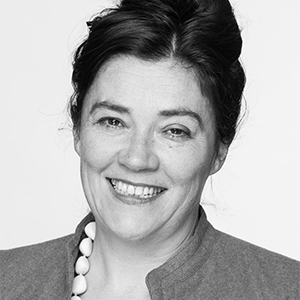 A. Frances Johnson is the winner of the 2020 Peter Porter Poetry Prize, worth a total of $9,000. The winner was named at a ceremony at the Boyd Hub Community Center in Melbourne on January 16.
A. Frances Johnson is the winner of the 2020 Peter Porter Poetry Prize, worth a total of $9,000. The winner was named at a ceremony at the Boyd Hub Community Center in Melbourne on January 16.
A. Frances Johnson's winning poem is titled 'My Father's Thesaurus'. She receives $7,000. The other four shortlisted poets each receive $500. The full shortlist, including the winning poem, is available to read online and is published in the January–February issue of ABR.
This year’s judges – John Hawke, Bronwyn Lea, and Philip Mead – shortlisted five poems from almost 1,050 entries, from 30 countries. The shortlisted poets were Lachlan Brown (NSW), Claire G. Coleman (Vic.), Ross Gillett (Vic.), A. Frances Johnson (Vic. ), and Julie Manning (QLD).
2019
Andy Kissane: 'Searching the Dead'
Belle Ling: '63 Temple Street, Mong Kok'
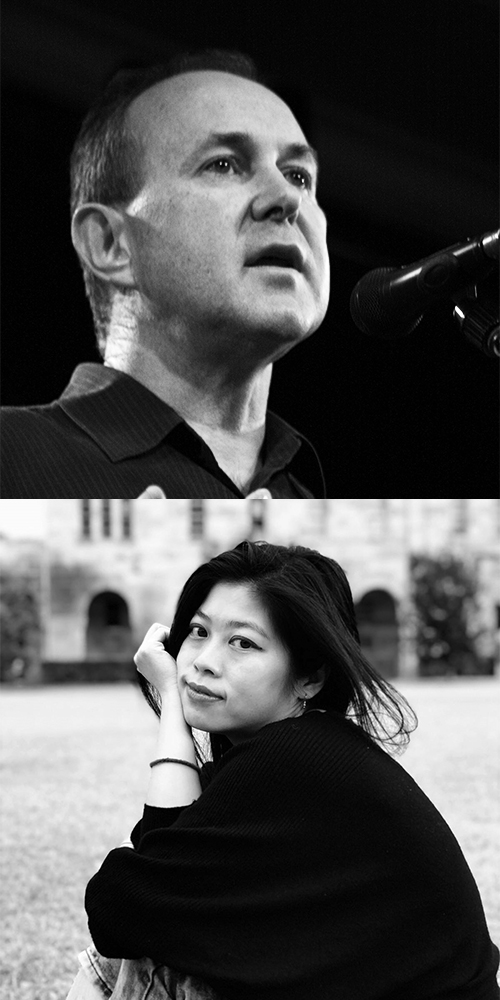 Andy Kissane and Belle Ling are the joint winners of the 2019 Peter Porter Poetry Prize, worth a total of $8,500. The winners were named at a ceremony at fortyfivedownstairs in Melbourne on 18 March 2019.
Andy Kissane and Belle Ling are the joint winners of the 2019 Peter Porter Poetry Prize, worth a total of $8,500. The winners were named at a ceremony at fortyfivedownstairs in Melbourne on 18 March 2019.
This year’s judges – Judith Bishop, John Hawke, Paul Kane – shortlisted five poems from almost 900 entries, from 28 countries. The shortlisted poets were John Foulcher (ACT), Ross Gillett (Vic.), Andy Kissane (NSW), Belle Ling (QLD/Hong Kong), and Mark Tredinnick (NSW).
Porter Prize judge Judith Bishop (representing the judges) commented:
In Belle Ling’s '63 Temple St, Mong Kok', other voices are rendered equally as vividly as the speaker’s own. Together they create the generous and gentle texture of this exceptionally resonant work.
‘Andy Kissane’s 'Searching the Dead' recounts a moment in Australian history – our soldiers’ involvement in the Vietnam War – that has not been captured before in this way. This dense, strongly physical and evocative poem grips the reader’s mind and body, and that imprint remains long after reading.
The shortlisted poems were: '63 Temple St, Mong Kok' by Belle Ling (joint winner, Qld/Hong Kong), 'Searching the Dead' by Andy Kissane (joint winner), 'Dancing with Stephen Hawking' by John Foulcher, 'The Mirror Hurlers' by Ross Gillett, and 'Raven' by Mark Tredinnick.
2018
Nicholas Wong: '101, Taipei'
 Nicholas Wong is the winner of the 2018 Peter Porter Poetry Prize, now worth a total of $8,500. Louis Klee, the 2017 winner, made the announcement at a special event at fortyfivedownstairs on Monday, 19 March. Nicholas Wong, who flew from Hong Kong to attend the Porter ceremony, receives $5,000. His winning poem, published in the March 2018 issue of Australian Book Review is titled ‘101, Taipei’.
Nicholas Wong is the winner of the 2018 Peter Porter Poetry Prize, now worth a total of $8,500. Louis Klee, the 2017 winner, made the announcement at a special event at fortyfivedownstairs on Monday, 19 March. Nicholas Wong, who flew from Hong Kong to attend the Porter ceremony, receives $5,000. His winning poem, published in the March 2018 issue of Australian Book Review is titled ‘101, Taipei’.
Nicholas Wong, on winning the Prize, said: ‘I’m honoured and humbled to be the winner, especially with a poem whose subject matter may seem foreign. Winning the Porter Prize also allows me to reach out to Australian readers.’
This year’s judges – John Hawke, Bill Manhire, Jen Webb – shortlisted poems by five poets. They were chosen from a record field of almost 1,000 poems. Tracey Slaughter’s poem ‘breather’ was placed second. She receives $2,000 – the other three shortlisted poets $500 each.
The shortlisted poems were: 'Compass' by Eileen Chong, 'Decoding Paul Klee’s Mit Grünen Strümpfen (With Green Stockings) 1939' by Katherine Healy, 'The Abstract Blue Background' by LK Holt, 'breather' by Tracey Slaughter (second place, New Zealand), and '101, Taipei' by Nicholas Wong (winner, Hong Kong).
2017
Louis Klee: 'Sentence to Lilacs'
Damen O'Brien: 'pH'
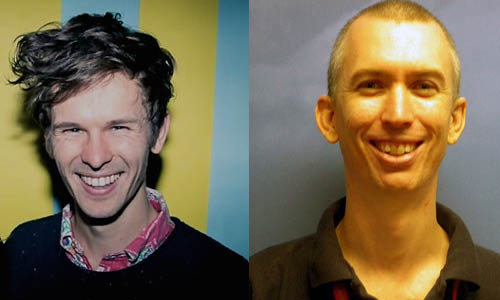 2017 Porter Prize winnersLouis Klee and Damen O'Brien are the joint winners of the 2017 Peter Porter Poetry Prize for their poems 'Sentence to Lilacs' and 'pH'. Morag Fraser named them as the winners at a ceremony at Collected Works Bookshop in Melbourne on March 23. The winners each receive $2,500 for their poems which were selected from almost 1000 entries, the Porter Prize's largest field to date.
2017 Porter Prize winnersLouis Klee and Damen O'Brien are the joint winners of the 2017 Peter Porter Poetry Prize for their poems 'Sentence to Lilacs' and 'pH'. Morag Fraser named them as the winners at a ceremony at Collected Works Bookshop in Melbourne on March 23. The winners each receive $2,500 for their poems which were selected from almost 1000 entries, the Porter Prize's largest field to date.
The judges were Ali Alizadeh, Jill Jones, and Felicity Plunkett.
The shortlisted poems were: 'Sentence to Lilacs' by Louis Klee (joint winner), 'pH' by Damen O'Brien (joint winner), 'Four Egrets' by Ronald Dzerigian (USA), 'Laika' by Anthony Lawrence, 'Drone' by Michael Lee Phillips (USA), 'The Snow Lies Deep' by Jen Saunders, and 'and it is what it is' by Jessie Tu. The shortlisted poets receive $500 each. The seven shortlisted poems appear in ABR’s March 2017 issue.
2016
Amanda Joy: 'Tailings'
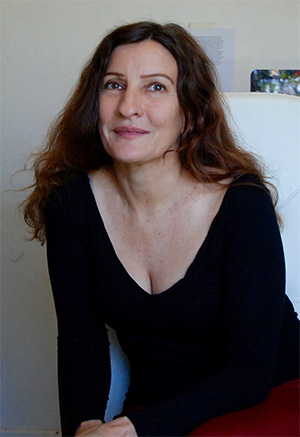 Amanda Joy is the winner of the 2016 Peter Porter Poetry Prize for her poem ‘Tailings’. Morag Fraser named Amanda as the overall winner at a ceremony at Boyd Community Hub in Melbourne. Amanda receives $5,000 for her poem, which was selected from a field of around 730 poems. She also receives Arthur Boyd’s etching and aquatint The unicorn and the angel, 1975 from the series The lady and the unicorn, 1975, donated by Ivan Durrant in memory of Georges Mora.
Amanda Joy is the winner of the 2016 Peter Porter Poetry Prize for her poem ‘Tailings’. Morag Fraser named Amanda as the overall winner at a ceremony at Boyd Community Hub in Melbourne. Amanda receives $5,000 for her poem, which was selected from a field of around 730 poems. She also receives Arthur Boyd’s etching and aquatint The unicorn and the angel, 1975 from the series The lady and the unicorn, 1975, donated by Ivan Durrant in memory of Georges Mora.
The judges were Luke Davies, Lisa Gorton, and Kate Middleton. They commented:‘“Tailings” is a poem remarkable for its close-woven language, everywhere charged with vivid details; and, at the same time, remarkable for its open and wide-ranging attentiveness. In “Tailings” the poet nowhere sets place at an aesthetic distance but everywhere attends to its mess and profligacy, a mode of perception alive to the hunger of animals.’
The shortlisted poems were: 'Tailings' by Amanda Joy (winner), '... a passing shower?' by Dan Disney, 'Prelude to a Voiice' by Anne Elvey, 'Rage to Order' by Lisa Gluskin Stonestreet (USA), and 'Lament for "Cape" Kennedy' by Campbell Thomson. The shortlisted poets receive $625 each.
2015
Judith Beveridge: 'As Wasps Fly Upwards'
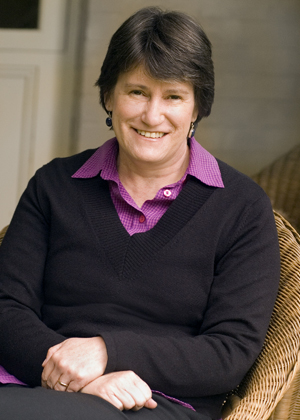 Judith Beveridge is the winner of the 2015 Peter Porter Poetry Prize for her poem ‘As Wasps Fly Upwards’. Morag Fraser named Judith as the overall winner at a ceremony at Collected Works Bookshop in Melbourne. Judith receives $5,000 for her poem, which was selected from a field of around 600 poems. She reflected: ‘I am deeply honoured to have won the Peter Porter Poetry Prize, not only because of the high regard I have for Peter Porter’s poetry and for Australian Book Review, but also because of the very strong 2015 shortlist. I loved all the poems and was truly surprised to hear I’d won. My sincere thanks to ABR for continuing this prestigious prize, which is a great support for poets.’
Judith Beveridge is the winner of the 2015 Peter Porter Poetry Prize for her poem ‘As Wasps Fly Upwards’. Morag Fraser named Judith as the overall winner at a ceremony at Collected Works Bookshop in Melbourne. Judith receives $5,000 for her poem, which was selected from a field of around 600 poems. She reflected: ‘I am deeply honoured to have won the Peter Porter Poetry Prize, not only because of the high regard I have for Peter Porter’s poetry and for Australian Book Review, but also because of the very strong 2015 shortlist. I loved all the poems and was truly surprised to hear I’d won. My sincere thanks to ABR for continuing this prestigious prize, which is a great support for poets.’
The shortlisted poems were: 'As Wasps Fly Upward' by Judith Beveridge (winner), 'Vantage' by Eileen Chong, 'Janus' by Toby Fitch, 'Floribunda' by John Kinsella, 'When/Was' by Kate Middleton, and 'Pitch and Yaw' by Alex Skovron. The shortlisted poets receive $500 each. All six shortlisted poems can be read here.
The judges were Lisa Gorton, Paul Kane, and Peter Rose.
2014
Jessica L. Wilkinson: 'Arrival Platform Humlet'
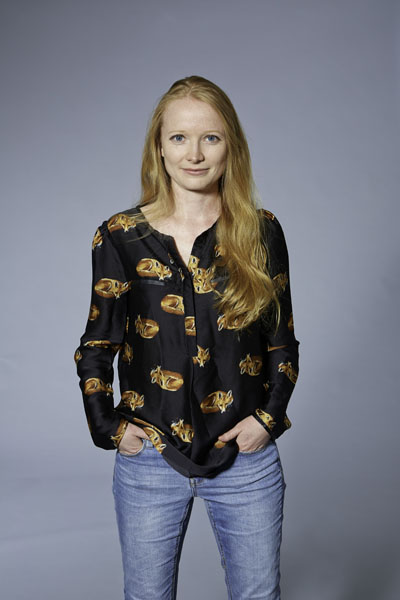 Jessica L. Wilkinson was the winner of the tenth Peter Porter Poetry Prize for her poem ‘Arrival Platform Humlet’, about Percy Grainger. She reflected: ‘For anyone in attendance, my shock at winning the prize was apparent. I entered a state of speechlessness! But I am truly honoured that my poem was recognised in this way and immensely grateful to the judges, Lisa Gorton and Felicity Plunkett.’
Jessica L. Wilkinson was the winner of the tenth Peter Porter Poetry Prize for her poem ‘Arrival Platform Humlet’, about Percy Grainger. She reflected: ‘For anyone in attendance, my shock at winning the prize was apparent. I entered a state of speechlessness! But I am truly honoured that my poem was recognised in this way and immensely grateful to the judges, Lisa Gorton and Felicity Plunkett.’
The shortlisted poems were: 'VFGA' by Paul Kane (USA), 'Absence' by Elizabeth Allen, 'Scenes from the Olivet Discourse' by Nathan Curnow, and 'Arrival Platform Humlet' by Jessica L. Wilkinson (winner). This was the first time that the Porter Prize was open to international entrants. They appeared in the May 2014 issue.
2013
John A. Scott: 'Four Sonnets'
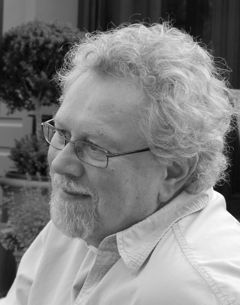 At a function at Boyd, John A. Scott was named the winner of the 2013 Peter Porter Poetry Prize, worth $4,000. Remarkably, his winning entry, ‘Four Sonnets’, is his first new poem in a quarter of a century. Not that Mr Scott has been idle during this time. He is the author of sixteen books to date. His novel What I Have Written won a Victorian Premier’s Prize in 1994, and his novels Before I Wake (1996) and The Architect (2002) were shortlisted for several awards, including the Miles Franklin Award. He has a new book coming out this year with Brandl & Schlesinger, the experimental novel N. On winning the prize, John A. Scott told us: ‘I’m honoured to have won the Peter Porter Poetry Prize with my first new poem in nearly twenty-five years. Doubly honoured in fact, having long regarded Peter Porter as Australia’s finest poet.’
At a function at Boyd, John A. Scott was named the winner of the 2013 Peter Porter Poetry Prize, worth $4,000. Remarkably, his winning entry, ‘Four Sonnets’, is his first new poem in a quarter of a century. Not that Mr Scott has been idle during this time. He is the author of sixteen books to date. His novel What I Have Written won a Victorian Premier’s Prize in 1994, and his novels Before I Wake (1996) and The Architect (2002) were shortlisted for several awards, including the Miles Franklin Award. He has a new book coming out this year with Brandl & Schlesinger, the experimental novel N. On winning the prize, John A. Scott told us: ‘I’m honoured to have won the Peter Porter Poetry Prize with my first new poem in nearly twenty-five years. Doubly honoured in fact, having long regarded Peter Porter as Australia’s finest poet.’
The judges were Peter Rose, David McCooey, and Bronwyn Lea. The shortlisted poems were: 'Prophecy' by Nathan Curnow, 'Big Wig' by A. Frances Johnson, 'Four Sonnets' by John A. Scott (winner), 'procedures in aesthetics' by Dan Disney, and 'Bushfire Approaching' by John Kinsella. They appeared in the March 2013 issue.
2012
Michael Farrell: 'Beautiful Mother'
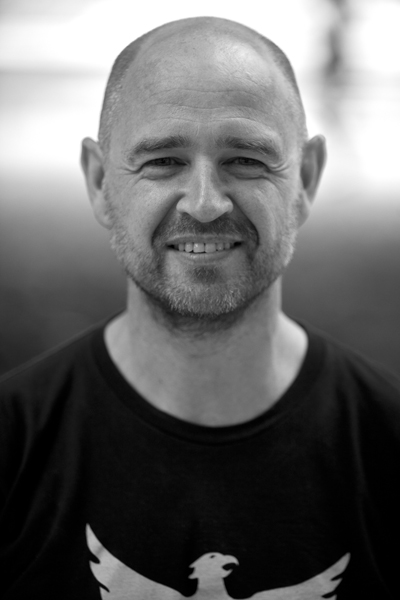 Michael Farrell is the winner of the 2012 Peter Porter Poetry Prize, worth $4,000. Our judges, Judith Beveridge and David McCooey, selected his poem, ‘Beautiful Mother’, from almost 800 entries. On learning of his success, Mr Farrell told us: 'It’s exciting to have won the Peter Porter Poetry Prize, especially from such a large field. It’s an honour to be linked with Peter Porter, whom I was lucky enough to meet on several charming occasions. The poem itself betrays several hauntings: not least a scene from television that’s stayed with me since I was probably four or five, of Kimba the white lion swimming back to the jungle, a vision of his mother in the sky encouraging him.'
Michael Farrell is the winner of the 2012 Peter Porter Poetry Prize, worth $4,000. Our judges, Judith Beveridge and David McCooey, selected his poem, ‘Beautiful Mother’, from almost 800 entries. On learning of his success, Mr Farrell told us: 'It’s exciting to have won the Peter Porter Poetry Prize, especially from such a large field. It’s an honour to be linked with Peter Porter, whom I was lucky enough to meet on several charming occasions. The poem itself betrays several hauntings: not least a scene from television that’s stayed with me since I was probably four or five, of Kimba the white lion swimming back to the jungle, a vision of his mother in the sky encouraging him.'
The shortlisted poems were: 'Provenance' by Gareth Robinson, 'Bayside Suburban' by Anne Elvey, 'Beautiful Mother' by Michael Farrell (winner), 'After Devotion' by Annamaria Weldon, and 'Oscillations' by Toby Fitch. They appeared in the March 2012 issue.
2011
Judith Bishop: 'Openings'
Tony Lintermans: 'Self-portrait at Sixty'
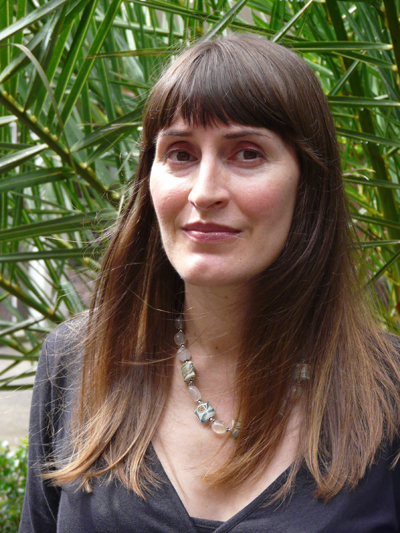 For the first time, two poets have shared our Poetry Prize. The judges – Morag Fraser and Peter Rose – couldn’t separate Judith Bishop (‘Openings’) and Tony Lintermans (‘Self-portrait at Sixty’). Each poet receives $2000. Almost five hundred poems were entered this year.
For the first time, two poets have shared our Poetry Prize. The judges – Morag Fraser and Peter Rose – couldn’t separate Judith Bishop (‘Openings’) and Tony Lintermans (‘Self-portrait at Sixty’). Each poet receives $2000. Almost five hundred poems were entered this year.
Judith Bishop – who becomes the first person to win ABR’s Poetry Prize twice – told us: ‘To win a prize dedicated to the memory of a poet of Peter Porter’s calibre, range, and emotional depth is deeply humbling.’
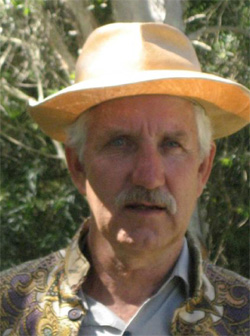
Tony Lintermans likewise reflected on Peter Porter’s legacy, and humanity: ‘What a joy to share the Peter Porter Poetry Prize. The only time I met Peter Porter, at an Adelaide Festival years ago, he was typically generous and thoughtful in his comments. I think of this poem as a small and sadly belated answer to his kindness.’
The shortlisted poems were: 'Self-Portrait at Sixty' by Tony Lintermans (joint winner), 'Dreams and Artefacts' by Lisa Gorton, 'Moonlight Sculptures' by Stephen Edgar, 'Openings' by Judith Bishop (joint winner), and 'Humility' by Alex Skovron. They appeared in the March 2011 issue.
2010
Anthony Lawrence: 'Domestic Emergencies'
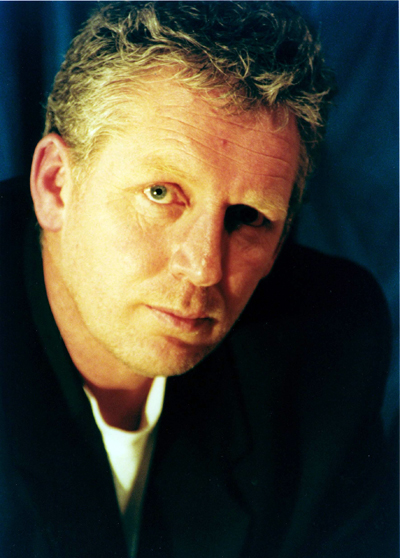 Australian Book Review has much pleasure in announcing the winner of the sixth annual Australian Book Review Poetry Prize. Anthony Lawrence received $4,000 for his poem ‘Domestic Emergencies’. The judges – Ian Donaldson, Morag Fraser, and Peter Rose – chose the poem from a field of just under 400 poems.
Australian Book Review has much pleasure in announcing the winner of the sixth annual Australian Book Review Poetry Prize. Anthony Lawrence received $4,000 for his poem ‘Domestic Emergencies’. The judges – Ian Donaldson, Morag Fraser, and Peter Rose – chose the poem from a field of just under 400 poems.
On winning the prize, Anthony said: ‘I’m thrilled to have won the Australian Book Review’s poetry prize. I’ve been reading the Australian Book Review for many years and the fact that it gives serious space and consideration to poetry, both in its reviews and the publishing of individual poems, is to be celebrated.’
The shortlisted poems were: 'Taken as Required' by Ynez Sanz, 'The Hummingbird Suite' by Diane Fahey, 'Here Come the Missionaries' by Philip Salom, 'Estuary' by Jillian Pattinson, and 'Domestic Emergencies' by Anthony Lawrence (winner). They appeared in the April 2010 issue.
2009
Tracy Ryan: 'Lost Property'
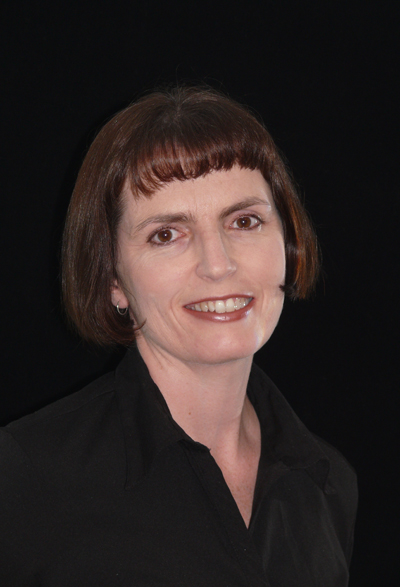
Australian Book Review has much pleasure in announcing the winner of the fifth annual Australian Book Review Poetry Prize. Tracy Ryan received $4,000 for her poem ‘Lost Property’. The judges – Paul Hetherington, Morag Fraser, and Peter Rose – chose the poem from a field of approximately 500 poems.
On being told of her success, Tracy said: ‘I’m honoured, delighted, and very surprised. I’m a keen reader of the ABR but have never published a poem in it before. This is a pleasant way to start! And the poem belongs to an unpublished manuscript of new work, tentatively called The Argument. It feels as if the award somehow helps bring that new book into being.’
The shortlisted poems were: 'Yellow Jacket: Vespula maculifrons' by Rose Lucas, Lost Porperty by Tracy Ryan (winner), 'The Dark Zone' by Kathryn Lomer, 'The Storm Glass' by Lisa Gorton, 'The Reed Pen' by Angela Mahone, and 'The Aquarium' by Judith Beveridge. They appeared in the March 2009 issue.
2008
Ross Clark: 'Danger: Lantana'
 Ross Clark was the winner of the fourth ABR Poetry Prize for his poem ‘Danger: Lantana’. His poem 'Full-Bucket Moon' was shortlisted for the third ABR Poetry Prize.
Ross Clark was the winner of the fourth ABR Poetry Prize for his poem ‘Danger: Lantana’. His poem 'Full-Bucket Moon' was shortlisted for the third ABR Poetry Prize.
Reacting to his win, Clark commented: ‘Both shortlisted poems created memories within rural settings; the former’s fictionality is more obvious, but both poems are songs made from the sweepings of my mind, both begin in the rag-and-bone shop of history and locality. I’m thrilled to have won, and hope the readers of ABR will hear the creek flowing again in these words.’
The judges were Peter Rose, Lisa Gorton and Paul Hetherington. The shortlisted poems were: '(for the siblings)' by Kevin Gillam, 'T/here' by Judith Bishop, 'a full stop reaches the end of its sentence' by Nathan Shepherdson, 'Danger: Lantana' by Ross Clark (winner), and 'The Window' by Brenda Walker. They appeared in the March 2008 issue.
2007
Alex Skovron: 'Sanctum'
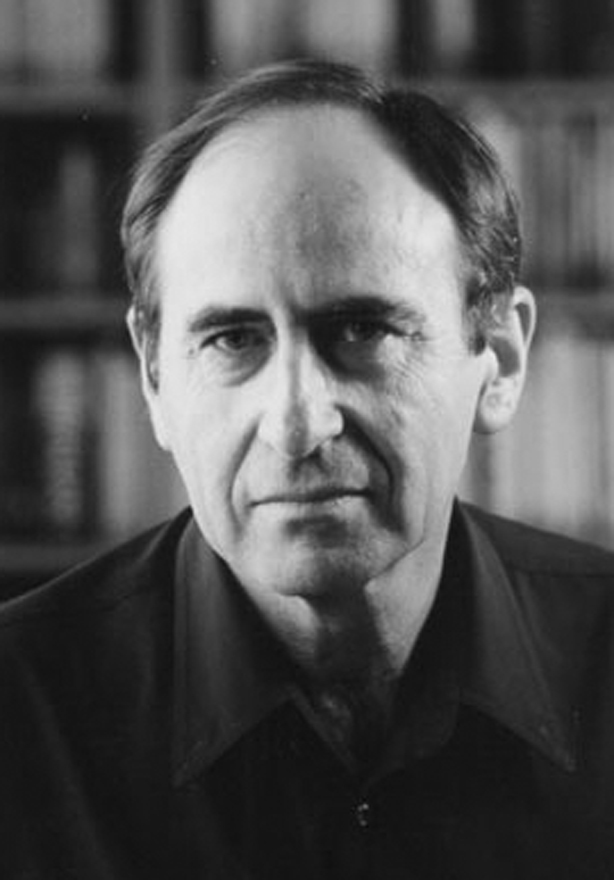 Alex Skovron was the winner of the third ABR Poetry Prize for his poem ‘Sanctum’. His poem ‘Boy’ was shortlisted for the second ABR Poetry Prize.
Alex Skovron was the winner of the third ABR Poetry Prize for his poem ‘Sanctum’. His poem ‘Boy’ was shortlisted for the second ABR Poetry Prize.
The judges were Peter Rose, Morag Fraser and Paul Hetherington. On receiving the judges’ congratulations for his dark, evocative poem, Alex Skovron commented: ‘I’m delighted and honoured to be this year’s recipient of the prize. I wrote the first version of ‘‘Sanctum’’ in July 2004. It’s an oblique, shadowy piece, an offbeat portrait framed within a telling that’s imbued with at least some of the delirium of its protagonist. The other protagonist is, of course, language.’
The shortlisted poems were: 'Sanctum' by Alex Skovron (winner), 'Full-Bucket Moon' by Ross Clark, 'The Fledglings' by Robert Adamson, 'The Fencer and His Mate' by Kathryn Lomer, 'The Red Sea' by Stephen Edgar, and 'Guidance and Knowledge' by Anthony Lawrence. They appeared in the March 2007 issue.
2006
Judith Bishop: 'Still Life with Cockles and Shells'
 Judith Bishop was the winner of the the 2007 ABR Poetry Prize. The judges - Peter Rose, Morag Fraser, and Craig Sherborne - described her winning poem ‘Still Life with Cockles and Shells’ as ‘unfailingly poised and suggestive’.
Judith Bishop was the winner of the the 2007 ABR Poetry Prize. The judges - Peter Rose, Morag Fraser, and Craig Sherborne - described her winning poem ‘Still Life with Cockles and Shells’ as ‘unfailingly poised and suggestive’.
The shortlisted poems were: 'Mallee' by Lisa Gorton, 'Braid' by J.S. Harry, 'Boy' by Alex Skovron, 'Still Life with Cockles and Shells' by Judith Bishop (winner), 'Back Roads, Local Roads' by Brendan Ryan, and 'Spiders' by Keith Harrison. They appeared in the March 2006 issue.
2005
Stephen Edgar: 'Man on the Moon'
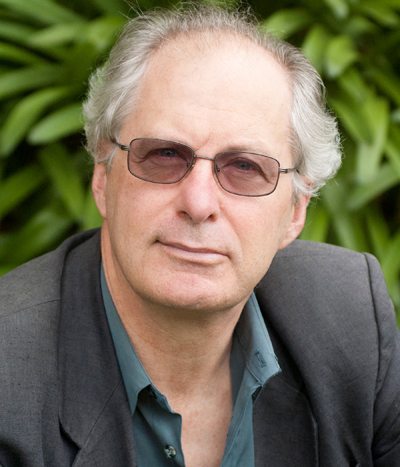 Stephen Edgar won the inaugural ABR Poetry Prize with his poem ‘Man on the Moon’.
Stephen Edgar won the inaugural ABR Poetry Prize with his poem ‘Man on the Moon’.
The three judges, Morag Fraser, Peter Rose, and Peter Steele, were impressed by the overall quality of the entries and were pleased to be able to choose from such a strong shortlist, but the final decision was quick and unanimous because of the formal and imaginative qualities of Stephen Edgar’s poem.
The shortlisted poems were: 'Ventriloquist's Dummy' by Jennifer Harrison, 'Man on the Moon' by Stephen Edgar (winner), 'Ubirr Rock' by Mark Tredinnick, 'Storm' by Maria Takolander, 'Headgear (a review)' by Sandra Hill, and 'Low at the Edge of the Sands' by Kevin Gillam. They appeared in the March 2005 issue.
2015 Peter Porter Poetry Prize
Australian Book Review is delighted to announce that Judith Beveridge has won the 2015 Peter Porter Poetry Prize for her poem ‘As Wasps Fly Upwards’. Morag Fraser named Judith as the overall winner at a ceremony at Collected Works Bookshop in Melbourne. Judith receives $5,000 for her poem, which was selected from a field of around 600 poems.
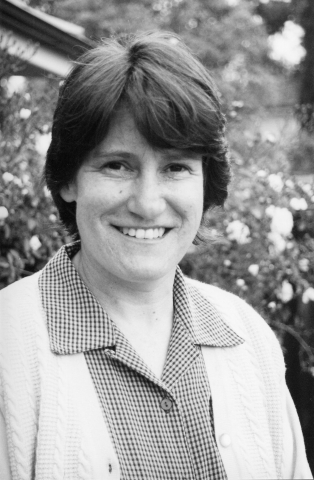
The other shortlisted poets were Eileen Chong, Toby Fitch, John Kinsella, Kate Middleton, and Alex Skovron, who won the Prize in 2007. Each of them receives $500.
Judith Beveridge’s latest poetry publications are Devadatta’s Poems and Hook and Eye, which has just been published by George Braziller for the US market. She currently teaches creative writing at the University of Sydney.
The judges were Lisa Gorton, Paul Kane, and Peter Rose.
‘I am deeply honoured to have won the Peter Porter Poetry Prize, not only because of the high regard I have for Peter Porter’s poetry and for Australian Book Review, but also because of the very strong 2015 shortlist. I loved all the poems and was truly surprised to hear I’d won. My sincere thanks to ABR for continuing this prestigious prize, which is a great support for poets.’ Judith Beveridge
Subscribers can read all six shortlisted poems here
The Porter Prize is one of Australia’s most lucrative and respected awards for poetry. It honours the life and work of the great Australian poet Peter Porter (1929–2010), an honoured contributor to ABR for many years.
Please read our Frequently Asked Questions page before contacting us with queries about the Porter Prize.
Click here for more information about past winners.
We gratefully acknowledge the long-standing support of Ms Morag Fraser AM.
2014 Peter Porter Poetry Prize Winner
Australian Book Review is delighted to announce that Jessica L. Wilkinson has won the 2014 ABR Peter Porter Poetry Prize for her poem ‘Arrival Platform Humlet’. Jessica receives $4,000 for her winning poem, which was drawn from a field of just under 700 entries. The judges were Lisa Gorton and Felicity Plunkett.
‘I am truly honoured that my poem ‘‘Arrival Platform Humlet’’ was recognised in this way and very privileged to be associated with the good name of Peter Porter.’
Jessica L. Wilkinson
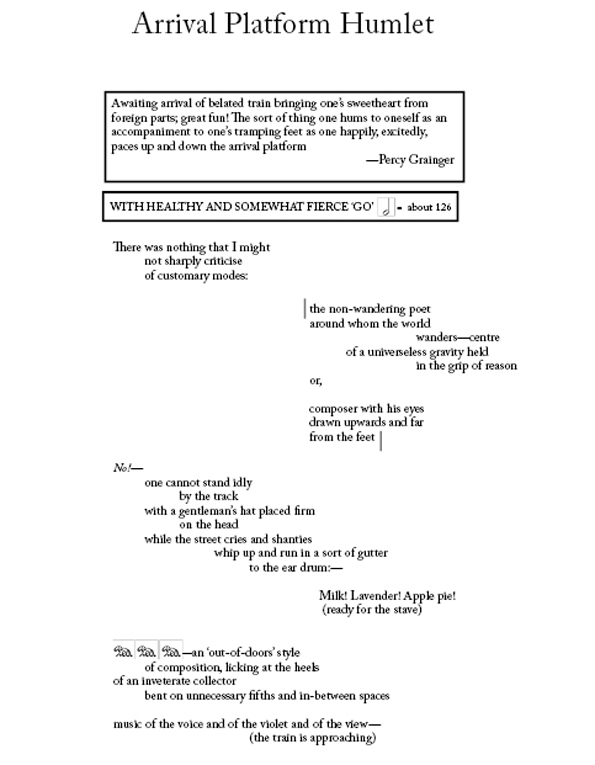
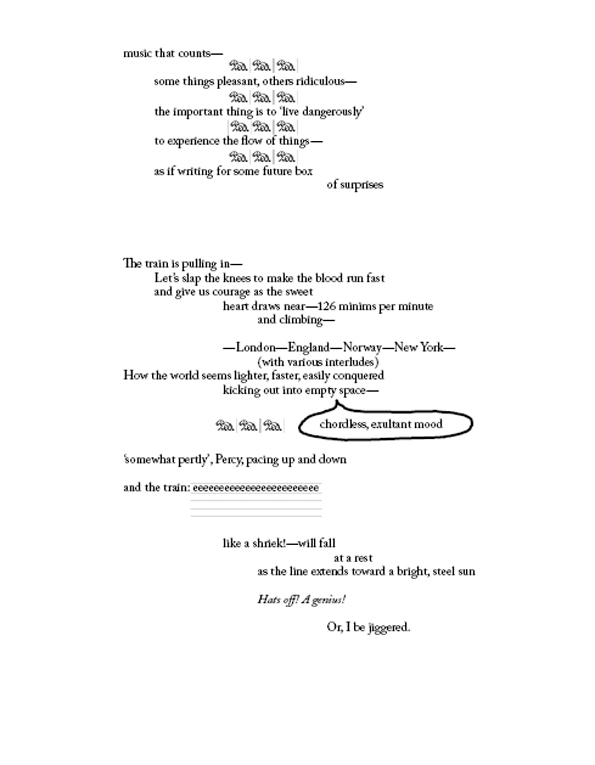
2014 winner
2014 winner
The Calibre Prize, created in 2007, has quickly established itself as Australia’s major prize for an original essay, generating brilliant new essays and fresh insights into culture, society, and the human condition. Click here for more information about past Calibre Prize winners.
Australian Book Review has much pleasure in announcing the winner of the 2014 Calibre Prize for an Outstanding Essay. Christine Piper receives $5000 for her essay ‘Unearthing the Past’. The judges – Morag Fraser and ABR Editor Peter Rose – chose Piper’s essay from a large field. We congratulate all of them, especially the winner and shortlisted essayists.
Peter Rose said, ‘Christine Piper’s inspired essay complements Calibre’s long record of highlighting essays of real quality and moment. Readers will not easily forget this bracing and important essay.’
Christine Piper writes about biological weapons and experiments on living human beings in pre-war and wartime Japan. The remains of just some of the victims (the overall death toll is estimated at 250,000 to 300,000) were discovered in Tokyo twenty-five years ago. They have never been identified. The story takes Dr Piper to Japan, where she interviews key lawyers and activists who are seeking answers. We also meet the unspeakable Shiro Ishii, dubbed the Josef Mengele of Japan. Ishii, who masterminded Japan’s biological warfare program, escaped prosecution through an immunity deal with the United States. He died at home in 1959.
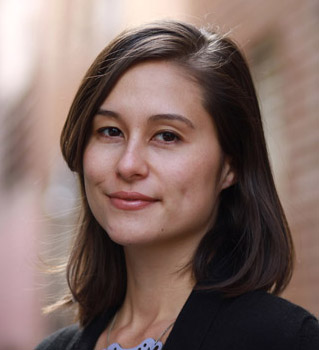 CHRISTINE PIPER is a freelance writer and editor. Born in South Korea to a Japanese mother and Australian father, she moved to Australia when she was one. She has previously taught English and studied Japanese in Japan, and currently lives in New York with her husband. See: www.christinepiper.com
CHRISTINE PIPER is a freelance writer and editor. Born in South Korea to a Japanese mother and Australian father, she moved to Australia when she was one. She has previously taught English and studied Japanese in Japan, and currently lives in New York with her husband. See: www.christinepiper.com
On learning that she had won the Calibre Prize, Christine Piper commented: ‘I am honoured to be chosen as the winner, and delighted that my essay will have a wide audience thanks to Australian Book Review and Colin Golvan. I’d like to dedicate the award to the activists who have spent years campaigning and raising awareness about this dark chapter of Japan’s past.’
Christine Piper's winning essay is published in the April 2014 issue of ABR.
![]() Click here to download the media release.
Click here to download the media release.
Click here to read Christine Piper's essay: 'Unearthing the Past'.
Purchase the April 2014 print edition.
Subscribe to ABR Online to gain access to this issue online, plus the ABR archive (containing all Calibre Prize essays published from 2011).
Shortlisted essays
- Ruth Balint: ‘The Paradox of Weimar: Hitlerism and Goethe’
- Martin Edmond: ‘Five Towns’
- Rebecca Giggs: ‘Open Ground: Trespassing on the Pilbara’s Mining Boom’
- Ann-Marie Priest: ‘“Something very difficult and unusual”: The Love Song of Henry and Olga’
- Stephen Wright: ‘Blows upon a Bruise’
ABR gratefully acknowledges the support of Mr Colin Golvan SC.
2014 Jolley Prize
Jennifer Down was named the winner of the 2014 ABR Elizabeth Jolley Short Story Prize in front of a packed house at Melbourne Writers Festival on Saturday, 30 August. Ms Down, a Victorian writer, received $5,000 for her story entitled ‘Aokigahara’.
 Jennifer Down at the announcement ceremony (photograph by Torunn Momtazi)
Jennifer Down at the announcement ceremony (photograph by Torunn Momtazi)
The Jolley Prize – one of Australia’s most lucrative and visible awards for short fiction – attracted about 1,200 entries. The judges – Patrick Allington, Cassandra Atherton, and Amy Baillieu – shortlisted three stories:
Jennifer Down – ‘Aokigahara’ First place: $5,000
Faith Oxenbridge – ‘Doisneau’s Kiss’ Second place: $2,000
Cate Kennedy – ‘The Art of Life’ Third place: $1,000
All three stories appear in full in our September Fiction issue.
The judges also highly commended two stories which we will publish in coming months: Gregory Day’s ‘The 900s Have Moved’ and ‘The Great Dying’ by American writer Larry O’Connor.
We will begin seeking entries in the sixth Jolley Prize in December 2014.
Readers’ Choice Award
To celebrate the Jolley Prize (and to find out which of the three shortlisted stories our readers like most), we are also presenting the Readers’ Choice Award. You have until October 20 to nominate your favourite story. To do so, simply email us with the title of the story you wish to nominate, along with your full name, address, and telephone number: This email address is being protected from spambots. You need JavaScript enabled to view it.
We have some special prizes for three lucky voters. One will receive twenty-five Text Classics, courtesy of Text Publishing. Two other voters will receive two-year complimentary subscriptions to ABR Online.
‘ABR has also contributed to elevating the status of the short story with its annual Jolley Prize.’ – Blanche Clark, Herald Sun
You may be interested in reading the shortlisted stories from previous years.
More information about all our past winners is available here.
We also recommend you read our list of Frequently Asked Questions before contacting us with a question about the Jolley Prize.
Entries for the 2015 Jolley Prize will officially open in December. Keep up to date with the latest developments on the prize, as well as other interesting ABR news and giveaways, by signing up to our newsletters.
Jolley Prize Frequently Asked Questions
I don’t live in Australia and I am not an Australian citizen. Can I still enter?
Yes, you can. Anyone can enter the Jolley Prize. But all stories must be written in English.
I’m interested in the Jolley Prize but don’t know much about it. How can I familiarise myself with the competition?
This is the fifteenth time that Australian Book Review has presented a short story prize. Past issues containing the shortlisted and winning stories are available for subscribers to read online in our online archive or to purchase in hard-copy from our online store.
Click here for more information about past winners.
What is the entry period for the 2025 Jolley Prize?
Entries for the 2025 Jolley Prize are open from 10 February 2025 to 5 May 2025. The three shortlisted stories will be published in the August or September 2025 issue and the winner will be announced later in the month of publication.
Is there a set theme or topic for the Jolley Prize?
No, stories can be on any subject and in any style.
What is the word limit for the Jolley Prize?
Stories must be between 2,000 and 5,000 words in length.
Can I submit a non-fiction story?
No, the Jolley Prize is for fiction, although entries can be inspired by real life. ABR also presents the annual Calibre Essay Prize, which is intended for non-fiction essays.
Can I enter multiple stories in one entry?
No. Separate entries must be made, and transactions paid, for each story entered into the Jolley Prize. This is to ensure that a record is kept of each story entered, and also to ensure that payment is successfully made for each.
Is there a limit to the number of stories I can enter?
No, but as stated above, each story must be entered and paid for separately, as individual entries.
Can I enter my story using a pseudonym?
Works must be entered under a real name. Internally, ABR ensures that names are not associated with essays for the judging process. Essays are strictly blind judged. Should your work be shortlisted and named, pseudonyms will not be acceptable. For publicity reasons, all shortlisted authors must be publicly named.
I have written a story with someone else. Are we eligible to enter the Jolley Prize?
No, stories entered in the Jolley must be written by one individual author.
My friend/relative has written a story, can I enter it on their behalf?
No, stories must be entered by their authors.
Are translated stories eligible for entry in the Jolley Prize?
No.
To be eligible for entry in the Jolley Prize stories must not have been previously published, what constitutes ‘publication’?
Publication includes, but is not limited to, publication in print and online (for example in a journal/magazine/anthology or on a website). Publication on a personal blog/website constitutes publication. If a story has been written and assessed as part of a writing course but has not been distributed further, that does not constitute publication.
My story was shortlisted/commended for another prize, can I enter it in the Jolley Prize?
If your story was shortlisted/commended for another prize but was not published, then it can be entered in the Jolley. Please contact us if you are unsure about eligibility.
Can I submit the work I have entered in the Jolley Prize elsewhere while I await notification?
Initially, stories may be entered in other prizes or submitted to other publications. However, if your story is longlisted in the Jolley Prize you must confirm eligibility and exclusivity – i.e. you must either withdraw it from the other outlets/prizes or withdraw it from the Jolley Prize.
When will longlisted authors be contacted?
Notification will take place in July or early August 2025. Longlisted authors who are not shortlisted will be notified in July/August and can then offer their stories elsewhere. See our Terms and Conditions for more information.
When will non-longlisted authors be notified?
Notification will take place in July or early August 2025.
When and where will the shortlisted stories be published?
The three shortlisted stories will be published in the August or September 2025 issue of ABR and on the ABR website.
What is the prize money for the 2025 Jolley Prize?
The Jolley Prize is worth a total of $12,500 (AUD). This will be split between the three shortlisted authors in the following way:
First Prize: $6,000
Second Prize: $4,000
Third Prize: $2,500
Can I pay the discounted entry fee?
Current print subscribers and yearly digital subscribers may pay the discounted entry fee of AU$20 per entry. Non-subscribers pay AU$30 per entry. If you would like a print and/or digital subscription to ABR, click here.
Alternatively you can purchase a yearly digital subscription to ABR with your entry for the combined price of AU$100. Your sign-in details will be automatically sent to you by email, and you will be entitled to enter any additional stories at the discounted rate. We also offered combined print subscriptions and Jolley Prize entry packages. A full list of entry rates appears below:
Online entry (current ABR subscriber) - $20
Online entry (standard/non subscriber) - $30*
Online entry + 1-year digital subscription - $100
Online entry + 1-year print & digital subscription (Australia) - $130
Online entry + 1-year print & digital subscription (NZ and Asia) - $220
Online entry + 1-year print & digital subscription (Rest of World) - $240
Note: Print subscribers must provide their subscriber number to be eligible for the discounted rate (this can be found on the flysheet sent out with the magazine, or on renewal notices – alternatively, This email address is being protected from spambots. You need JavaScript enabled to view it. and we will provide you with your subscriber number). Likewise, yearly digital subscribers must provide the email address with which they registered the online subscription.
Can I pay with PayPal?
At this time we are accepting credit card payments only – Visa and MasterCard. We do not accept Amex.
Will I receive confirmation of payment?
Yes, once you have submitted your online entry and payment form, you will receive a confirmation email at the email address you supplied in the form. Keep a copy for your records. If you cannot find the confirmation email, be sure to check that it has not gone to your spam or junk folders.
Can I enter by post?
No, entries must be submitted online.
Who are the judges this year?
The 2025 judges are Julie Janson, John Kinsella and Maria Takolander.
Will you give me feedback about my story?
Unfortunately, we don’t have the time or resources to comment on individual stories.
How should I format my story?
Entries should be presented in 12 pt font size. The pages of stories should be numbered. (Please note, if you realise that you have submitted your story without the preferred formatting this will not disqualify it from the Prize.) The author’s name must not appear in the body of the entry or in the name of the digital file.
What file type is acceptable?
We accept Word documents only.
Where can I find the complete Terms and Conditions of entry?
These can be found here.
How can I stay in touch with news about the Jolley Prize?
If you have provided us with a current email address we will contact you with news about the Jolley Prize. Another way to stay up-to-date with news about the Jolley Prize and other ABR prizes and events is to sign up to our online newsletters. Alternatively you can follow us on Twitter, Facebook, or Instagram.
My question isn't answered here, what should I do?
If you have a question about the Jolley Prize that isn't answered here, or in the entry guidelines, please contact us via the comments facility below and we will respond when we can.


